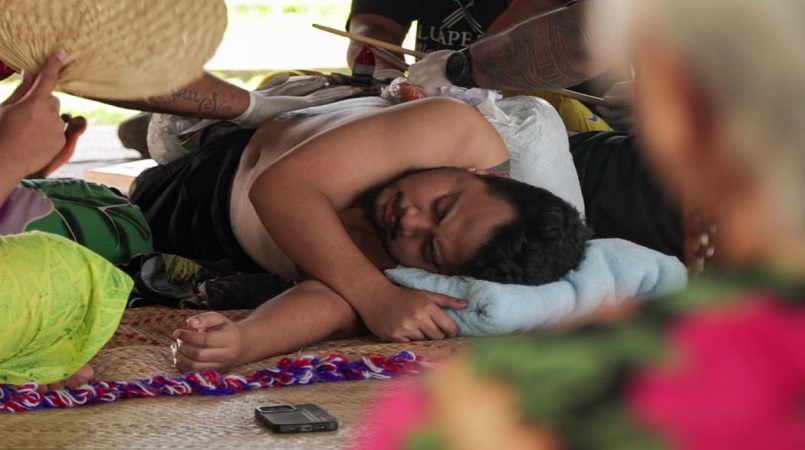
It's believed the traditional Samoan tatau, or tattoos, have been around for more than 3000 years and survived attempts to ban it.
Legend has it the tatau was gifted to Samoa from goddesses, Taema and Tilafaiga, who taught the Samoan people the practice, entrusting the tatau would live on for centuries.
To this day the history of the Samoan tatau fascinates people.
But there were also failed attempts by early missionaries to have it prohibited as they came to accept that the tatau was a rite of passage.
While it is a breathtaking work of art, the tatau is a symbol of identity, heritage and service.
Filmed in December 2022, the newly-released RNZ documentary, Tautua: Inked In Service follows Samoan journalist Faivaeselopepe Anric Sitanilei's journey on getting his tatau or pe'a.
The documentary also features interviews with Faivaeselopepe's family members and Samoan community leaders who share what role the tatau plays in the modern world, particularly for Samoans who live overseas.
Faivaeselopepe said he poured a lot of heart into his story because he knew how deeply cherished the tatau is in Samoan culture.
"With the tatau being such a sacred part of Samoan culture, there were things that the tufuga (tatooist) was telling us that we couldn't record and there were places that we couldn't record from," he said.
"So it was trying to figure out how to be able to authentically tell the story in a way that is still respectful to the culture and the traditions - not overstepping the boundaries because that's the last thing you want to do as a Pacific Islander, to step where you're not meant to step.
"A lot of Samoans have watched countless tatau journey documentaries and videos on YouTube, but they [the documentaries] tend to all look the same."
According to the 2018 New Zealand census, there are more than 180,000 Samoans living in the country. Faivaeselopepe said it was important to him to acknowledge the diaspora, especially those who have the pe'a or malu (female version of the tatau).
"What I wanted for the story was to step into a space that hasn't been explored before, that's why I named the documentary Tautua instead of Tatau," he said.
"Talking about what 'service' looks like to New Zealand Samoans or to Samoans who live outside of Samoa, or any Pacific Islander who lives outside their homelands. How do we in the 21st century connect the world that we live in now to the culture and the traditions of our ancestors?"
